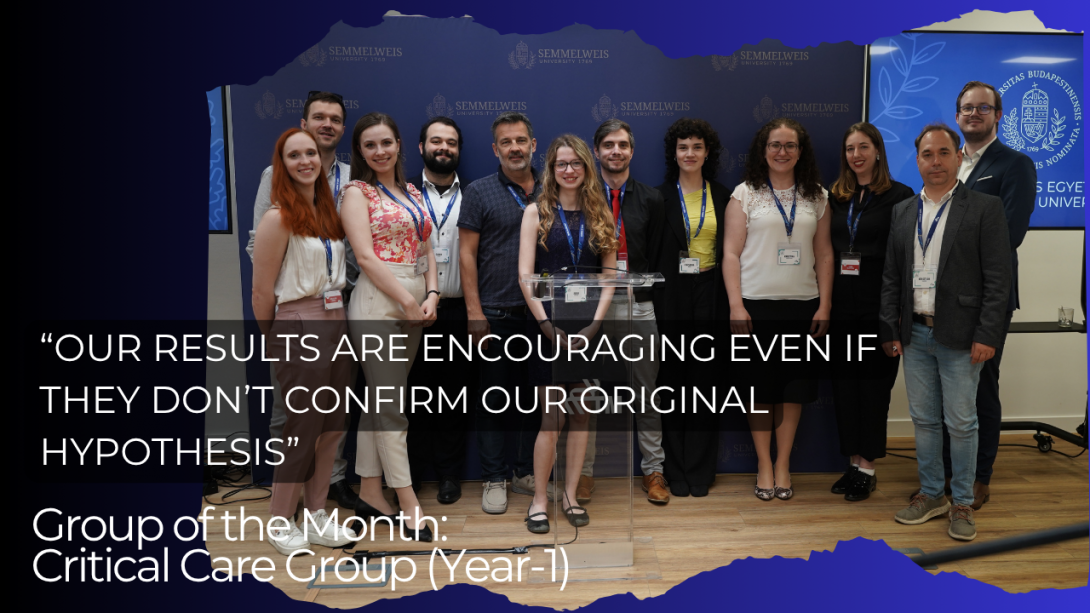
The Critical Care Group (Year-1) is led by Zsolt Molnár and László Zubek, who, together with the supervisors and the methodological experts of CTM, do their best to ensure that students progress well with their research. Several students have already started writing their manuscripts and will soon be able to publish their papers. In April, this group was named Group of the Month.
Members of the Critical Care Group (Year-1) are making great progress with their projects, many of them have already started to draft their manuscripts. „Students' progress is greatly helped by their supervisors, who are always on hand to help them and ensure that their research is going well. The only factor seems to affect which students have already had results and which ones haven't, is the size of the database they had to work with. Results that are already available are very encouraging regardless whether they confirm our original hypotheses. This year is particularly exciting because two medical students have joined our group as MD-Ph.D. students,” says Prof. Dr. Zsolt Molnár.
The students' research topics are very diverse. There is already an article in preparation phase in which the student investigated the efficacy and safety of prehospital targeted temperature management on neurological outcomes in out-of-hospital cardiac arrest patients. This study is one of those when exceptions of the researchers' hypothesis was not confirmed. “Her meta-analysis showed that in such cases, cooling is a waste of time and may even be harmful to patients. Another important study examined whether septic patients admitted to emergency departments are better off with fixed-dose volume resuscitation recommended in the current guidelines or with personalized resuscitation based on hemodynamic measurements. The results show that survival rate is significantly improved when patients receive fluid therapy in a personalized way. In time, this recommendation could be translated into guidelines.”
Another study deals with hemodynamic management. This topic is important because physicians in intensive care units have been using invasive hemodynamic monitoring for decades, but its effectiveness has not been clinically proven. Only experience has shown that this method improves patient outcomes. This has been confirmed in a meta-analysis, showing that invasive hemodynamic monitoring significantly reduces mortality. “There is also a Ph.D student in the group who is investigating immunomodulatory strategies in septic patients. It seems that in these patients, immunoglobulin and blood purification treatments may improve survival rate. This is in contrary to current guidelines, which do not recommend this treatment. We also have a study looking at the application of machine learning models in predicting extubation success in mechanically ventilated patients. Here, the results show that AI has a 90% probability of predicting extubation success, which is a great result.”
The Ph.D. students also have topics in anesthesiology. One of them, for example, is researching whether it is better to stop taking long-prescribed antihypertensives before surgery. The results show that where these drugs are not stopped, there is a significantly higher incidence of hypotension during surgery. This is essential information for anesthesiologists. Another important study has shown that the use of local anesthesia for heart surgery significantly reduces postoperative pain and opiate usage. This result also has a chance to enter future guidelines.
(Emese Szabó)